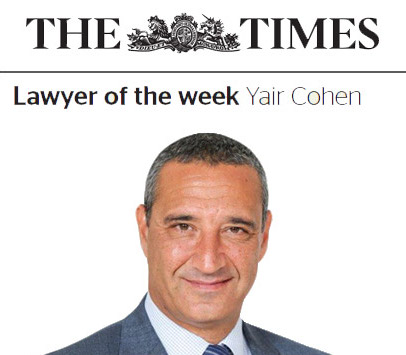Making a GDPR Claim against Google
When can you file a GDPR claim against Google
What happens after you file a GDPR claim against Google
Matters to consider before you file a GDPR claim against Google
What is the likelihood of success of a GDPR claim against Google
If you believe that a search engine provider: Google, Bing or Yahoo, has acted unreasonably or unfairly with regard to your right to be forgotten application, you might get a different outcome if you take the matter to court.
When can you file a GDPR claim against Google
If a search engine provider unreasonably persists with its refusal to comply with a justified right to be forgotten application, you might need to serve on the search engine provider a formal GDPR Notice. The GDPR Notice is a legal document, which signals your intention to enforce your legitimate legal rights through the courts. You will need to file and properly serve a GDPR Notice before you can file a GDPR claim against Google or against another search engine provider.
In other words, the consequence of an internet search engine provider’s failure to comply with a GDPR Notice, is to allow you to take your case to court.
Why file a GDPR claim against Google
There are various steps in the process of taking someone to court, particularly if the person or organisation is based outside of the jurisdiction. In most cases, a claim under GDPR against a search engine provider will require permission from the court to serve the claim form outside the jurisdiction. This is because the headquarters of most search engine providers are located outside of the UK.
Therefore, before you can lawfully serve a GDPR claim on Google, you will need to make this application before a judge in the High Court. You can always first file your GDPR claim against Google with the court, serve it informally on Google to put it on notice of your intention to make an application to serve outside the jurisdiction and then wait and see what Google's reply is. In many cases, this informal step would be sufficient for your matter to be brought to the attention of a senior content moderator at Google, or even one of Google's attorneys.
If you have a strong case, it is very likely that Google will agree to resolve your matter at that point. If your case is questionable, at least from Google's point of view, your matter will be transferred to one of Google's lawyers in London who will take a view on its merits. This is another milestone where your case might get resolved before you incur significant legal costs.
In the event that your matter is still not resolved, you will need to take steps to serve your claim on Google formally.
Matters to consider before you file a GDPR claim against Google
Make sure that you have prepared your case thoroughly. Double check that that you have served your GDPR Notice properly in accordance with the law. Consider the issue of anonymity. Remember that any legal claim, once served, will turn in to a public document. Your GDPR claim against Google could be inspected by journalists and reported. This could defeat the whole purpose of the claim. You will therefore need to apply for anonymity which will usually be granted in cases of GDPR claims of this nature.
See for example GYH v PERSONS UNKNOWN [2017] EWHC 3360 (QB) for right to anonymity in data protection and privacy cases. Before starting your claim, take legal advice from a specialist right to be forgotten solicitor who will advise you on how to remain anonymous throughout the claim and how to avoid your name being made publicly available through the court and legal documents.
What is the likelihood of success of a GDPR claim against Google
The likelihood of success if you decide to file a GDPR claim against Google will depend on the merits of your case. We have filed dozens of claims against Google in the past few years. It was very rare that after either filing a claim against Google or serving the claim, Google did not agree to our client's original request, so we have had good results so far.
It is important to note that we only advise clients with a good prospect of success to file a claim against Google or against another search engine provider.
Before taking any of the above steps, take legal advice.




